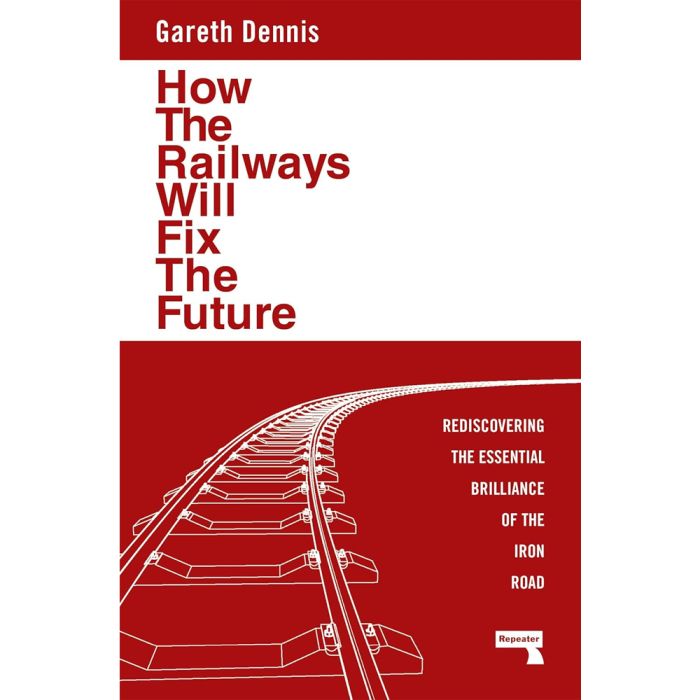
How the Railways Will Fix the Future Book
The world's railways were almost entirely created by capital and empire for extraction and exploitation, so what right do they have to exist and how can they be harnessed for good? Railway engineer and writer Gareth Dennis builds a case not simply for railways as a common good, but argues that railways are a critical tool for humanity to survive and thrive.
Whether it's the power of organised labour, the threats and opportunities of new technology, the distribution of democratic power or the calamitous impacts of climate change, railways can act as a lens through which to understand the future and the part they can play in it.
Dennis takes us across the globe, from Virgin Hyperloop's abandoned test track in the Nevada desert to the overcrowded stations of the North of England, exploring how railways can shape and inform choices about our future, and in turn detailing how taking a long-term view can help shape transport for the better. With his deep knowledge of railways and his unique view of history and politics, he equips us with the tools to answer those imperative questions: what and who should our railways be for?
In stock
Description / How the Railways Will Fix the Future Book
The world's railways were almost entirely created by capital and empire for extraction and exploitation, so what right do they have to exist and how can they be harnessed for good? Railway engineer and writer Gareth Dennis builds a case not simply for railways as a common good, but argues that railways are a critical tool for humanity to survive and thrive.
Whether it's the power of organised labour, the threats and opportunities of new technology, the distribution of democratic power or the calamitous impacts of climate change, railways can act as a lens through which to understand the future and the part they can play in it.
Dennis takes us across the globe, from Virgin Hyperloop's abandoned test track in the Nevada desert to the overcrowded stations of the North of England, exploring how railways can shape and inform choices about our future, and in turn detailing how taking a long-term view can help shape transport for the better. With his deep knowledge of railways and his unique view of history and politics, he equips us with the tools to answer those imperative questions: what and who should our railways be for?